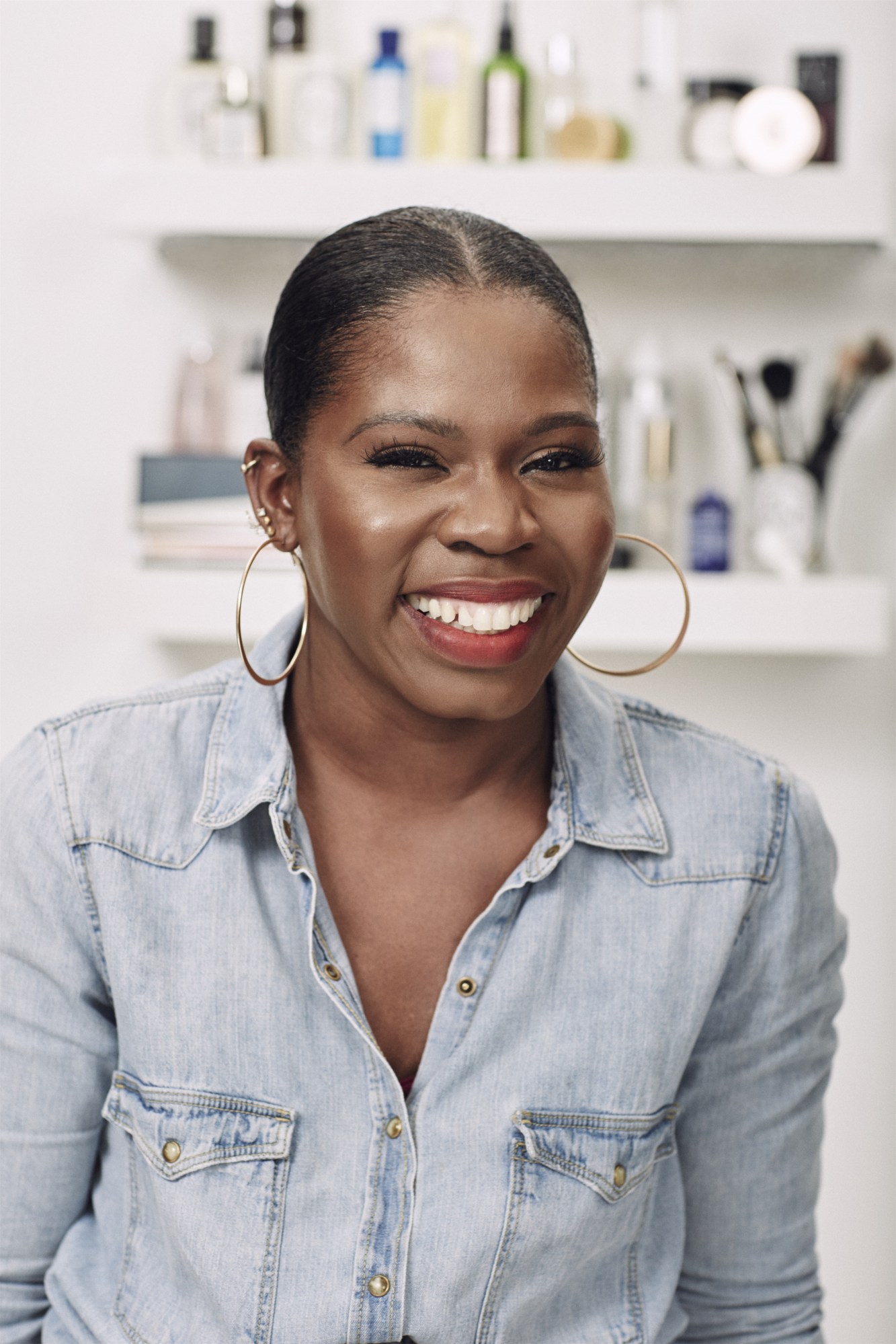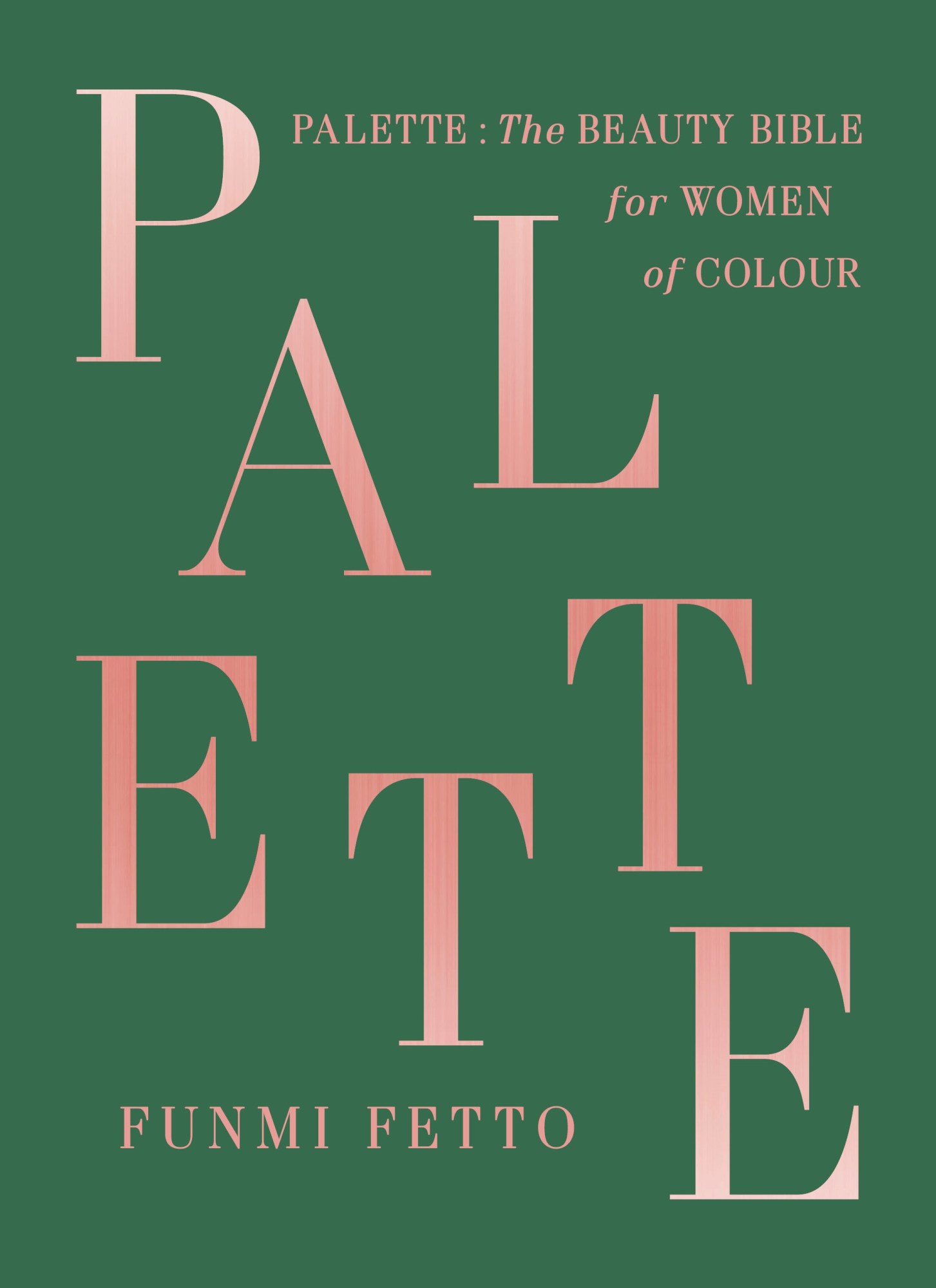“To every woman of colour, this is for us.” These are the powerful opening lines from Fumni Fetto’s utterly stunning beauty book Palette: The Beauty Bible for Women of Colour.
They’re meaningful, of course, because it’s no secret that black women have notoriously been ignored by the beauty industry. That all changed with Fenty Beauty, a phenomenal example of our buying power. Rihanna reportedly brought in $100 million in sales in just a few weeks after she launched the beauty brand, completely selling out of all of her dark shades.
Glamour Executive Editor & Beauty Director Fumni knows and understands this erasure all too well. She wrote her book for black women to feel loved. “We have been neglected for so long and when people think its just a beauty book, I think, well it’s not,” she tells i-D. “It’s more than just a beauty book. It’s speaking to people who have been marginalised for so long.”
The resulting book, Palette, is both a comprehensive list of 200 of Fumni’s holy grail items – from blushes which actually show on your skin to gel for your edges – but also a collection of funny, real and relatable anecdotes of Fumni’s early experiences with makeup. The mesh of approaches stops the book feeling too didactic or academic. “That’s just a bit boring,” Fumni says matter-of-factly. “I wanted it to feel like it was a conversation I was having with the reader.”

Despite her 15 years of experience as a beauty and fashion writer, publishing a book like Palette was never something on Fumni’s radar. The decision to write it then, was influenced by the countless women of colour who would approach her, asking for product recommendations and help with their own makeup. “I started to think putting something together would be helpful,” she says. “I’m always having to send people prescriptions [for beauty].”
Palette’s voice, however, is authentic and different from what you might expect from your average “beauty bible”. Fumni doesn’t shy away from telling the truth, even if that means criticising brands for their ashy eyeshadow palettes or disliking a particular type of packaging. “I felt I had to be honest,” she says. “And not because I am trying to be conscientious or because I was deliberately trying to be mean but because right now there is a lot of beauty writing where brands are paying people to say XYZ. I felt a responsibility, given these are products people spend their hard-earned cash on.”
But it’s the ideology of the book itself that takes precedent beyond the actual product recommendations.
“Yes, its a product based book and it’s meant to be very helpful,” she explains, “but it’s the messaging that’s really important. For me, it was saying: ‘Women of colour are here and we are relevant, speak to us and we are not going away.’”
Like many other black women, Fumni recalls countless incidences of feeling excluded from the beauty industry. She shares a story about being an intern at a glossy magazine in the early 2000s where she stumbled upon a gorgeous orange blusher that she had high hopes would work on her skin. “I remember the packaging was so beautiful and exquisite and I tried it on constantly, just because – holding onto this hope that maybe, just maybe, it would work. It was a lovely product, but not made for me.” She describes the experience, poignantly, as akin to unrequited love: “You love it and they don’t love you back”.
But that long held feeling of unrequited love is finally shifting, as more and more high end and high street brands have begun catering to dark skin black women. While that is a positive development, it’s also not quite so simple. Fumni explains that the main issue at hand is shelf space. Retailers aren’t stocking all the various shades of foundations on display. “It’s mind-blowing to me. You have these big brands who are failing us,” she says. “Think about the message you’re sending to women of colour when you do this. You are basically telling us you have no space for us.”
“And so many brands just don’t speak to women of colour at all,” she adds. “You look at marketing material that features all white model and assume that that brand doesn’t make any products for black people.”

Change is happening, albeit slowly. The hair care industry in particular, Fumni explains, has a long way to go in catering for women of colour and afro hair. “We need to hire make up artists who know what they are doing with black skin,” she adds. “It’s ridiculous that even in this day and age it’s still a problem. I go on shoots and I am terrified of who is going to be doing my makeup now I have a certain person with me”.
But the author is still hopeful for the future, and Fumni hopes her book is one small step forward towards total acceptance for women of colour within the beauty industry. “I want young girls to just enjoy it,” she says. “I want girls to see there’s an opportunity to have their best skin ever, best hair ever, to just celebrate that melanin and that beauty and enjoy it”.
Palette: The Beauty Bible for Women of Colour by Funmi Fetto, published by Coronet, £25
